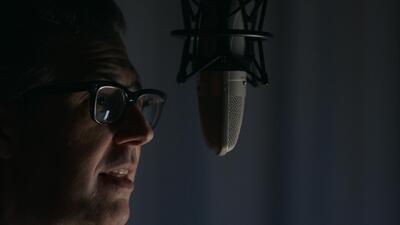Some records that I got rid of, I just thought, “Oh, I can stream them; it’s not a big deal,” but I was on eBay the other day [wondering] if I should rebuy an original pressing of Minutemen’s “Double Nickels on the Dime.” I have a CD version of it, and I can stream it—I was like, “I don’t need the thing”—but now I’m kind of regretting it, and I might rebuy it.
If you buy it back, are you not learning the lesson of the importance of letting things go?
I will say this: One breakthrough thing, in terms of owning a phone with a really decent camera on it, is that now I photograph things instead of buying them. I’ll go to a garage sale, and I’ll see a stereo console that I know isn’t even that good, but my inner 16-year-old wants to buy it, wants just to have that piece of technology. But now, I take a picture and step away—I don’t buy it. I don’t need a storage space to put it in to then pay to own it. I have found photographing things—records, clothing, vintage artifacts, objects—liberating. I can still document it. I can appreciate it in a certain way. But I often don’t need to own the actual thing.
This is not a Gen-X thing, necessarily, but there’s a certain artistic mindset that believes, “I can’t have a family, I can’t settle down because my art has to be the priority.” That is not the mindset you’ve adopted, but I wonder if that was a struggle initially when you started having kids with your wife.
Much like [with] aging, I think we sometimes think we’re the person who is going to get away with not having these things happen to us. There was a, perhaps, diluted optimism when I was at a particularly giddy, youthful moment of considering having a family where I thought, “You know what? I think I can pull this off!” We had both of our kids right while I was doing one of my favorite directing jobs I’ve ever done: a TV version of “This American Life.” We had these young kids, and I had this TV series that won a couple of Emmys. I was actually making a living doing [that show]—it wasn’t just cobbling together freelance things. I thought, “This is amazing.”
But the problem is, it is a marathon—it is not a sprint—and then what you realize is that sometimes it’s happening invisibly, the choices you’re making. You’re making a choice to spend time with the family and maybe not pursue that job or not spend extra time writing that treatment. That conflict is a central tension for anybody trying to make a living, have a family, and have a creative life. That’s a little bit of what “Flipside” wanted to examine—there are sacrifices that go along with that.

